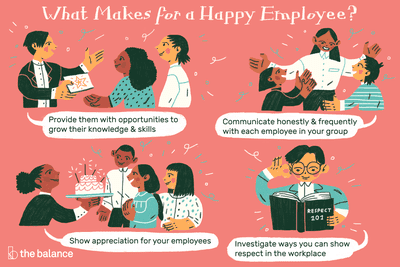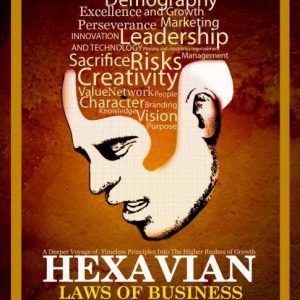
Save yourself the stress and face reality, most people are non-proactive and average, requiring more motivation to grow things and to grow themselves. But motivations in their very nature don’t last forever like diamonds and idiots do. So when you motivate an idiot, you’ll simply have a temporarily motivated idiot. In other words, motivation is like hard drugs, it only gives a temporary high. Motivation is a temporary solution to a permanent problem. That’s why we recommend it daily’. Chance are that the staff and people you think are lazy are really not, they simply just have goals that doesn’t motivate them enough. This concept is the heart of all classic motivational theories of business school, from Frederick Taylor’s Theory x and Theory Y right down to Maslow’s Hierarchy of needs. .
I had a research at Hexavia a few months ago as regards the best motivations for a team to drive performance. We used the Delphi technique to collate ideas into variables. And out of over 10 variables; this were the best 4 in no particular order.
- Training the Staff
- Giving them more difficult tasks
- Having performance reviews to let them know how well they are doing
Increasing salaries and other rewards.

Now, beyond this, my question would be, in the right ascending order, what is the best motivation for a team?

Let’s explore the options and probe deeper; that is pros and cons of different techniques for building a winning team
- A) Is Training The Most Effective Approach to Having a Winning Team?
Aptly speaking, if you don’t train them, then don’t blame them. But the training has to be immersive and engaging. Most training’s has the facilitator posing like a sage on a stage, whereas he should be a guide by the side. This is a more effective way of training staff. Else, they could attend training’s just for the sake of it (I know staff who are guilty of that; you ask them “why are you here”, and in all honesty, they say because management wants them to be here. In other words they really don’t want to be here). The second option would be (B). Giving Them More Difficult Tasks. The truth is that difficult tasks helps them learn. It would expand their knowledge quicker than training’s. But you’ve got to be there to give them pointers and be ready to allow errors and mistakes that can cost you. You can also explore Performance Reviews(C) but really how effective is Performance Reviews?

(C) Performance review can help you track progress. But isn’t that dependent on the metrics set? And also if it is relevant to the job roles and a huge challenge with this is usually data integrity. Sometimes it ends up as all about the numbers but does it really grow the people? How About (D) Rewards like Increase in Salary and Other Extrinsic Motivation. Maslow’s Hierarchy of Needs and Frederick’s Theory X and Theory Y show us how this it is the most temporal. Whatever you used to get them is what you’d use to keep them. So motivation works as a temporary solution to what may just be a permanent problem. Increase in salary can work until your motivations and rewards become ineffective and the staff becomes a “big shot”. Haven’t you noticed The Parkinson’s Law at play- how expenses always rise to meet new income and rewards? And then they begin to seek for more.

Now let’s explore what happens when you combine all 4. In a recent research by Jobberman on the top 100 firms to work for in Nigeria, Andela was found to be number 1. They are known to use a combination of all four approaches. Let’s practically explore how.
In the first few months of getting into Andela, you are trained extensively. The investment is huge and you are basically given stipends. During this time, there is no client engagement as you want to be sure you are up to par. This is a crucial stage in being a part of the company. If you don’t meet their expectation, you might be sent away. And then comes client engagement.
While all the training was good, client engagement is the real deal. Where you get to apply all your learnings. This is where you focus on what your client wants. You develop more skills based on client requirements and have to hone your abilities to client’s expectations. It stretches them more than ever. They aren’t assessed based on being at work but based on the quality of work done. They also engage in constant appraisal.

As regards constant appraisals, it is done on a frequent basis. About 800 hours or so. The employee triggers it when he feels he/she is ready. Reviews are given objectively based on what the person feels needs to be improved. They also use extrinsic motivations like pay and rewards.
In terms of extrinsic motivation and reward, free meals, fruits and free snacks are just a few of what is given to them. Flexible working environment as well as nap lounges, gyms and recreation areas in the office are also added. With constant appraisals, within 6 months-one year comes significant pay increase. All these combine to make Andela a great place to work.
For someone I know who works at Andela, there is this joy I see when he solves a problem. The extent to which he goes to solve a problem for a client, how it stretches him and grows him. No one can take it away from him.
Every organization needs to know its triggers for motivation and demotivation. The two-factor theory (also known as Herzberg’s Motivation-Hygiene Theory) illustrates this. It states that there are certain factors in the workplace that cause job satisfaction while a separate set of factors cause dissatisfaction, all of which act independently of each other. It was developed by psychologist Frederick Herzberg. Motivators would always include challenging work, recognition for one’s achievement, responsibility, opportunity to do something meaningful, involvement in decision making, sense of importance to an organization) that give positive satisfaction, arising from intrinsic conditions of the job itself, such as recognition, achievement, or personal growth. Demotivation otherwise called hygiene factors would always include things like low status, no job security, low salary, no fringe benefits, bad work conditions, no good pay, no paid insurance, and no vacations. That is, these are things that do not give positive satisfaction or lead to higher motivation, though dissatisfaction results from their absence. The term “hygiene” is used in the sense that these are maintenance factors. According to Herzberg, hygiene factors are what causes dissatisfaction among employees in the workplace. In order to remove dissatisfaction in a work environment, these hygiene factors must be eliminated.
It’s always great to remember the basics, that motivation is short-term, it never really solves the problem. For you, in case you are among the bandwagon that seeks motivation, I say “step out of it”. The unending quest for motivation is the journey that most average people engage in. We can’t base our work and performance on how we feel. Let’s get off our butts, take a lead to solve problems, for our good and that of others, most times irrespective of how we feel. It’s called value, the unit of growth. Stop waiting for motivation from others or for others to solve our problems, it’s a wrong game. Just get up. Start. Take ownership even in the absence of positional leadership or motivation. Most motivation is a hand me down state of mind. Don’t have a “hand me down” mentality. You’re not a hyena or a vulture. You don’t just sit there waiting for others to kill for you to eat; rather you kill what you eat. Life’s a fire jungle and you’re a wild animal. I am not afraid of a coalition of lions led by a sheep; I am afraid of a flock of sheep led by a lion”. Be a lion… Be hungry, be passionate!
Let your motivation come from something intrinsic, a deep why, bigger picture. Create and hold a picture of where you want to be long enough in your mind and you’d have succeeded with the first steps of given it the power to exist. Its life’s ultimate law of attraction. Everything is created twice, first mentally, then physically. Learn to dream and let that be your motivation. And stay off people who don’t believe in yours. See yourself for what you worth not what someone says you are through their own appraisal, the truth is, when you start seeing your worth, it becomes harder to be around people who don’t. Stay off negative energy. Never approach a bull from the front, a horse from the rear, or an idiot from any direction.

Be motivated by all you can be but haven’t become. After the dream, stay focused, consistently remembering that image of where you want to be. Plan. After this, be ready to take action and stay at it. Keep going. In business, 97 percent of those who quit are hired by the rest 3 percent who didn’t quit. Stick to your goal especially when you’re sure it’s worth it. Do not be distracted by others. Do not allow the outside noise drown your inner voice. Don’t allow your happiness come from the admiration and approval of other people. Don’t ever put the keys to your future and happiness in someone else’s pocket. Be mentally independent.
Don’t let anyone be the sole fuel of your own motivation. Be independent for if you give them the power to feed you, be reminded that you’ve also given them the power to starve you. With people and things, be open to everything and attached to nothing. Don’t put your drive in people, don’t just perform because of what your employer or client promised you, for they may even fail you. . People don’t change, their masks only falls off. I dare say shatter that mental box you have created by not just thinking out of the box but thinking like there is no box at all!

Eizu, ©Hexavia!
Strategy. Business StartUps and Corporate Restructuring Consulting
T: 08035202891
Uwaoma Eizu is the lead strategist at Hexavia! He is a graduate of Mathematics with two MBAs and over a decade of experience working with startups and big businesses. His core is in building startups and in corporate restructuring. He is also a certified member of the Nigerian Institute of Management, Institute of Strategic Management of Nigeria and the Project Management Institute, USA. By the side, he writes weekly for the BusinessDay newspaper.




